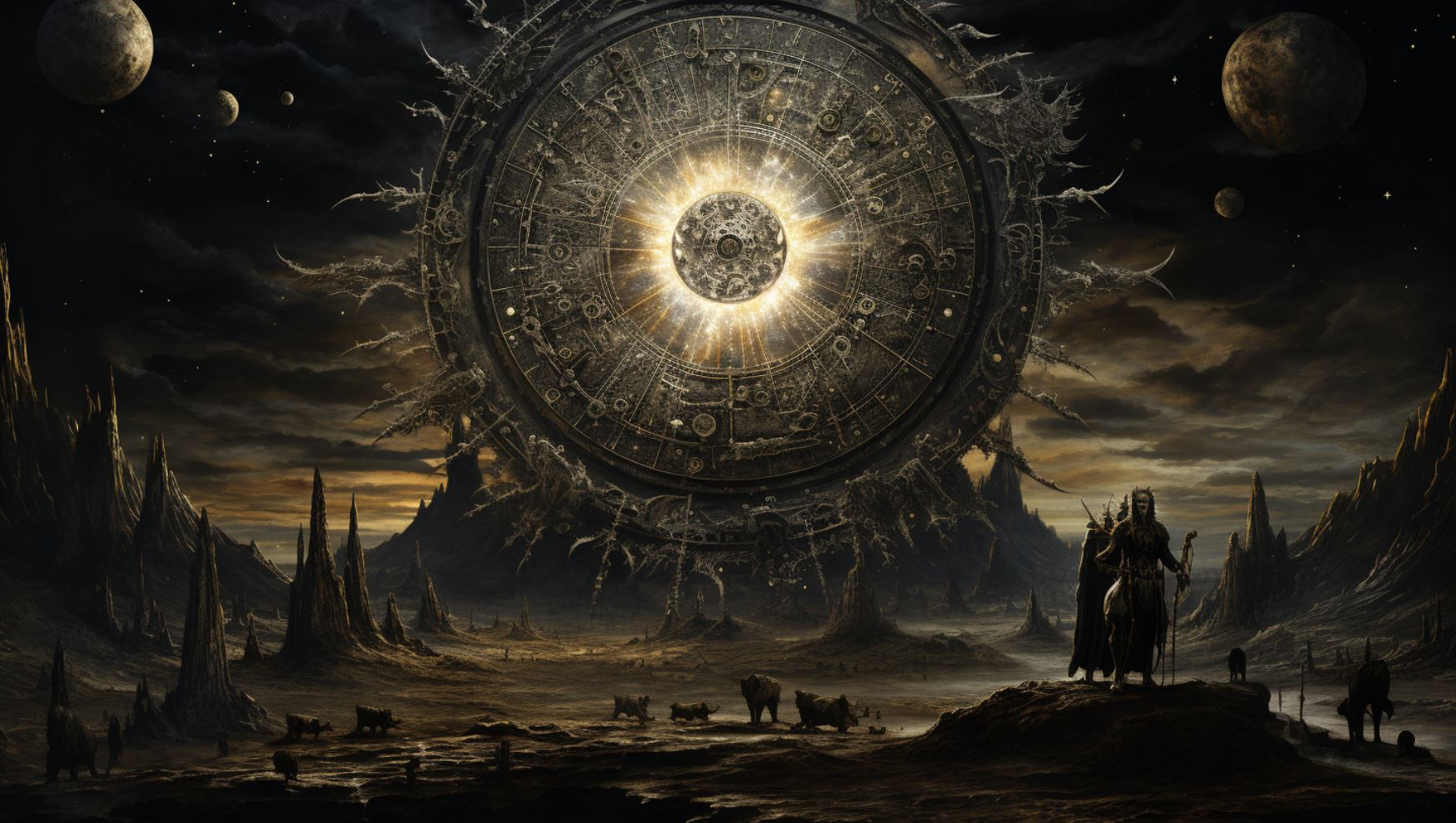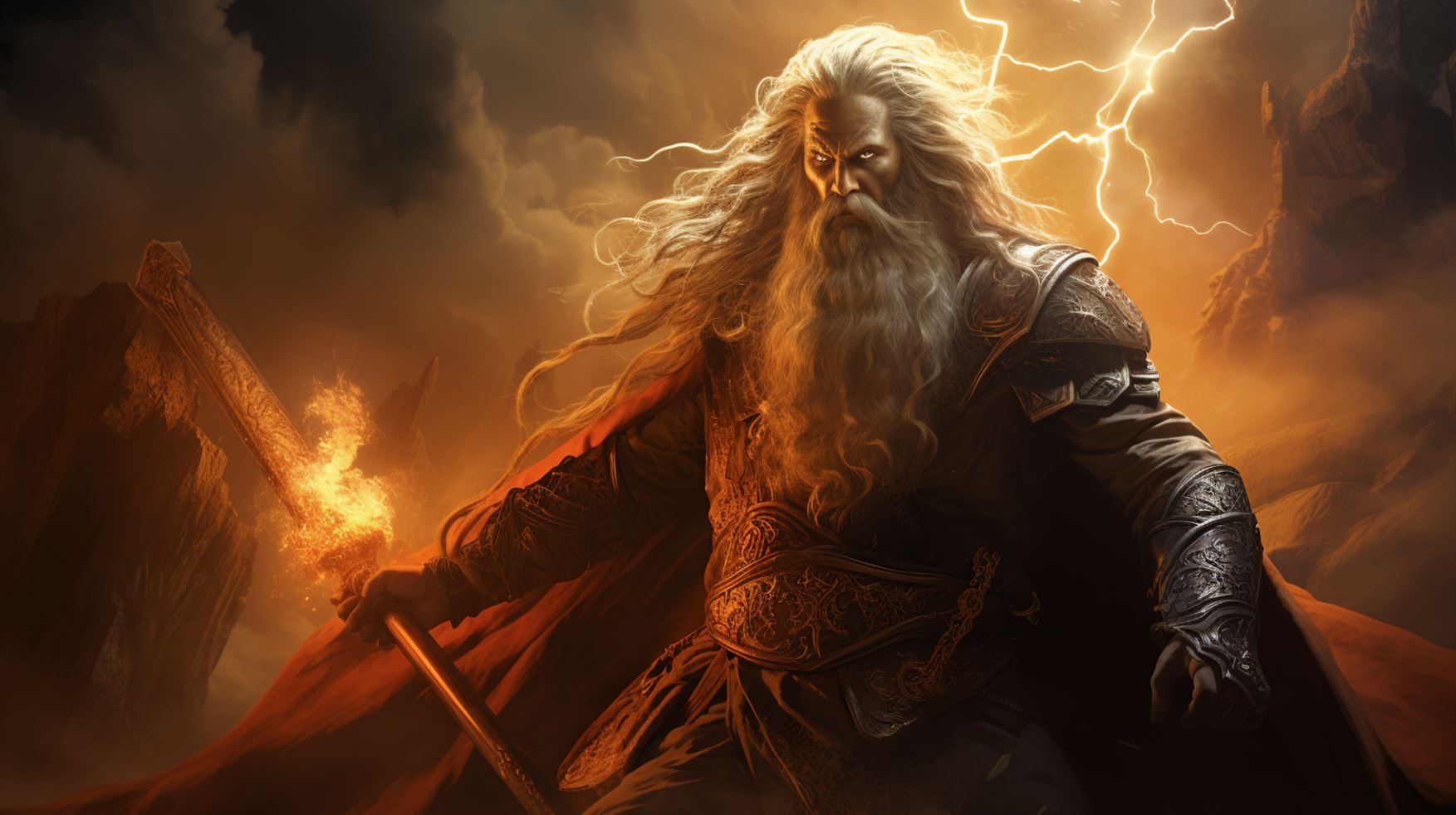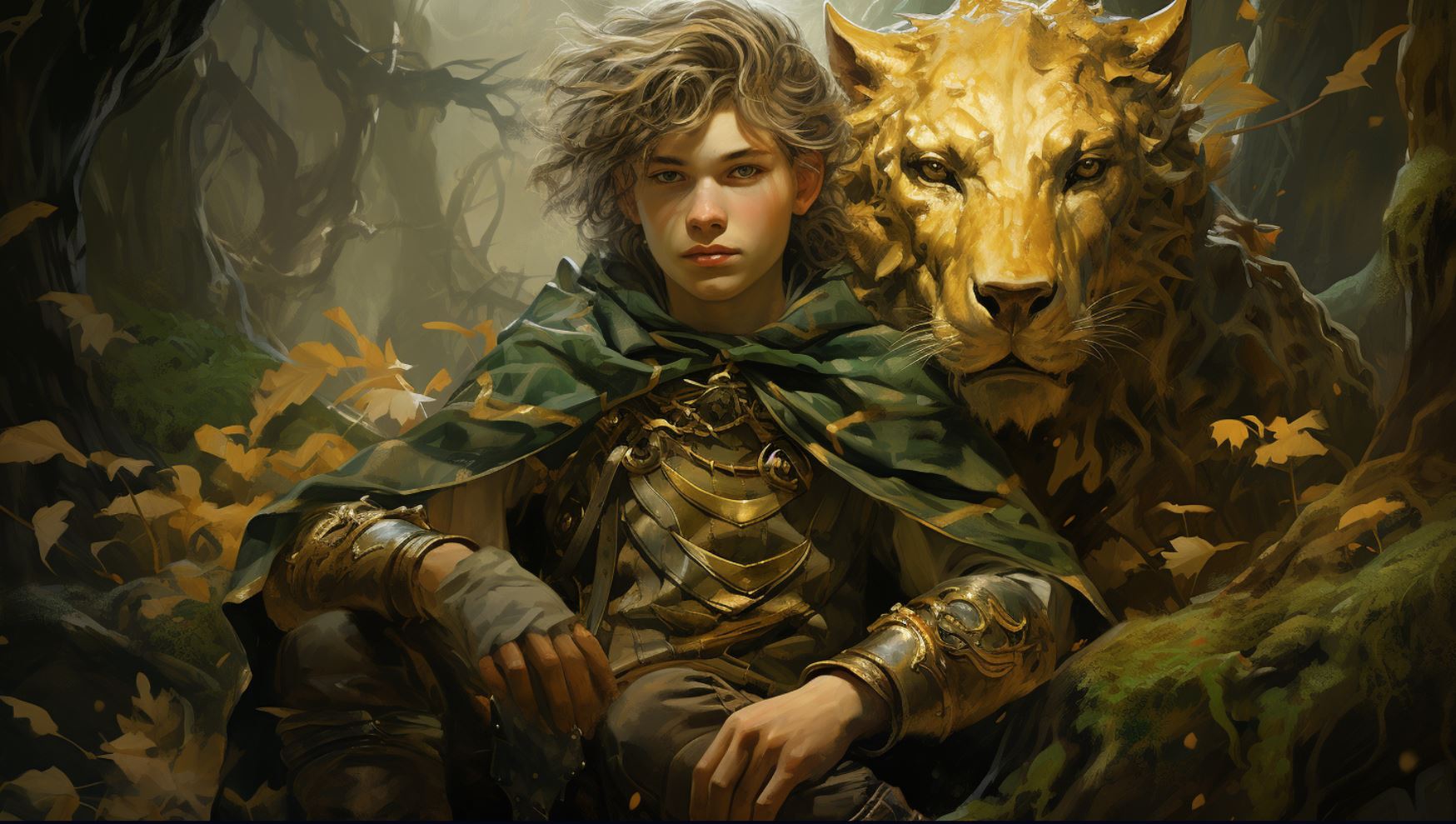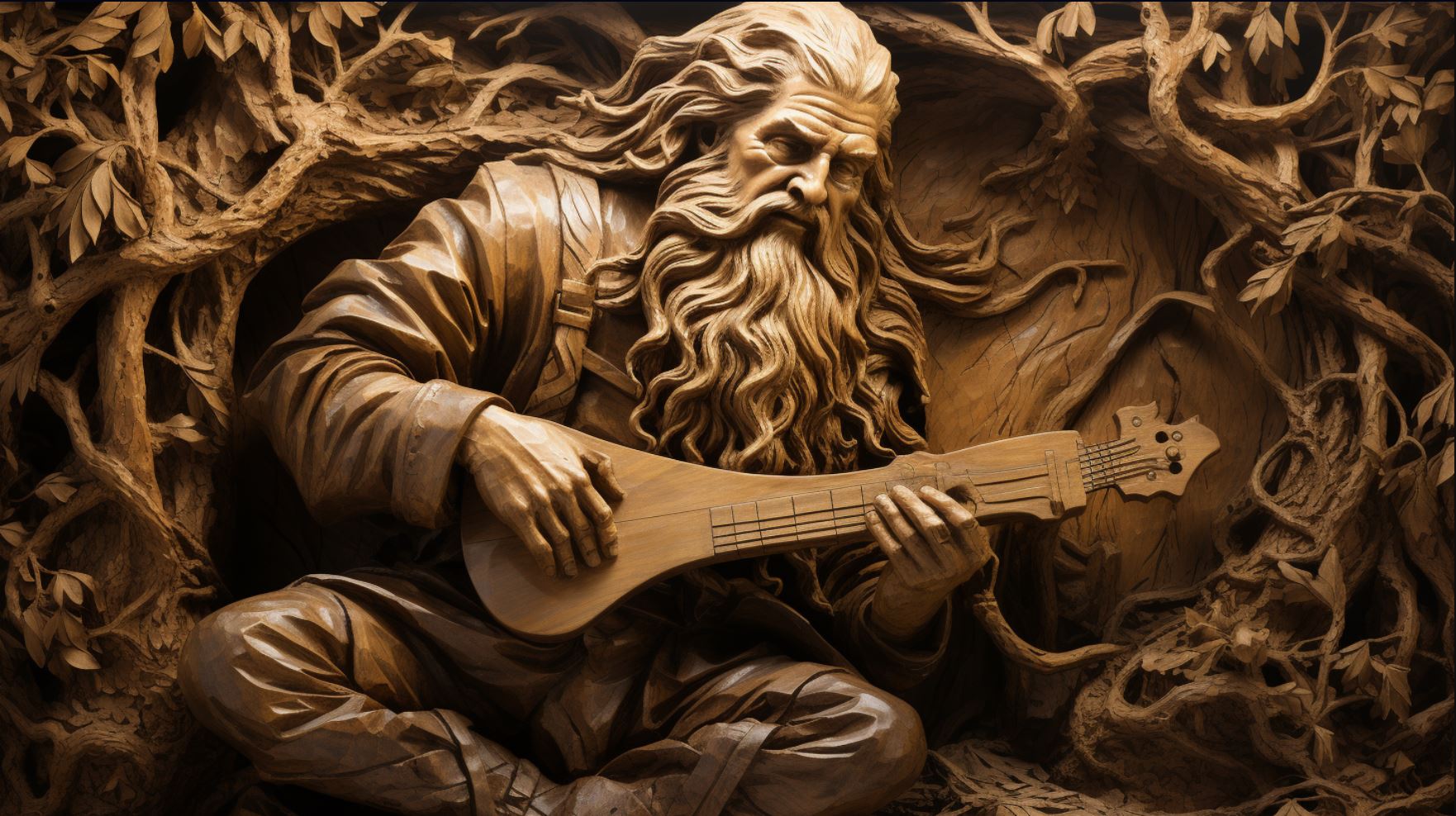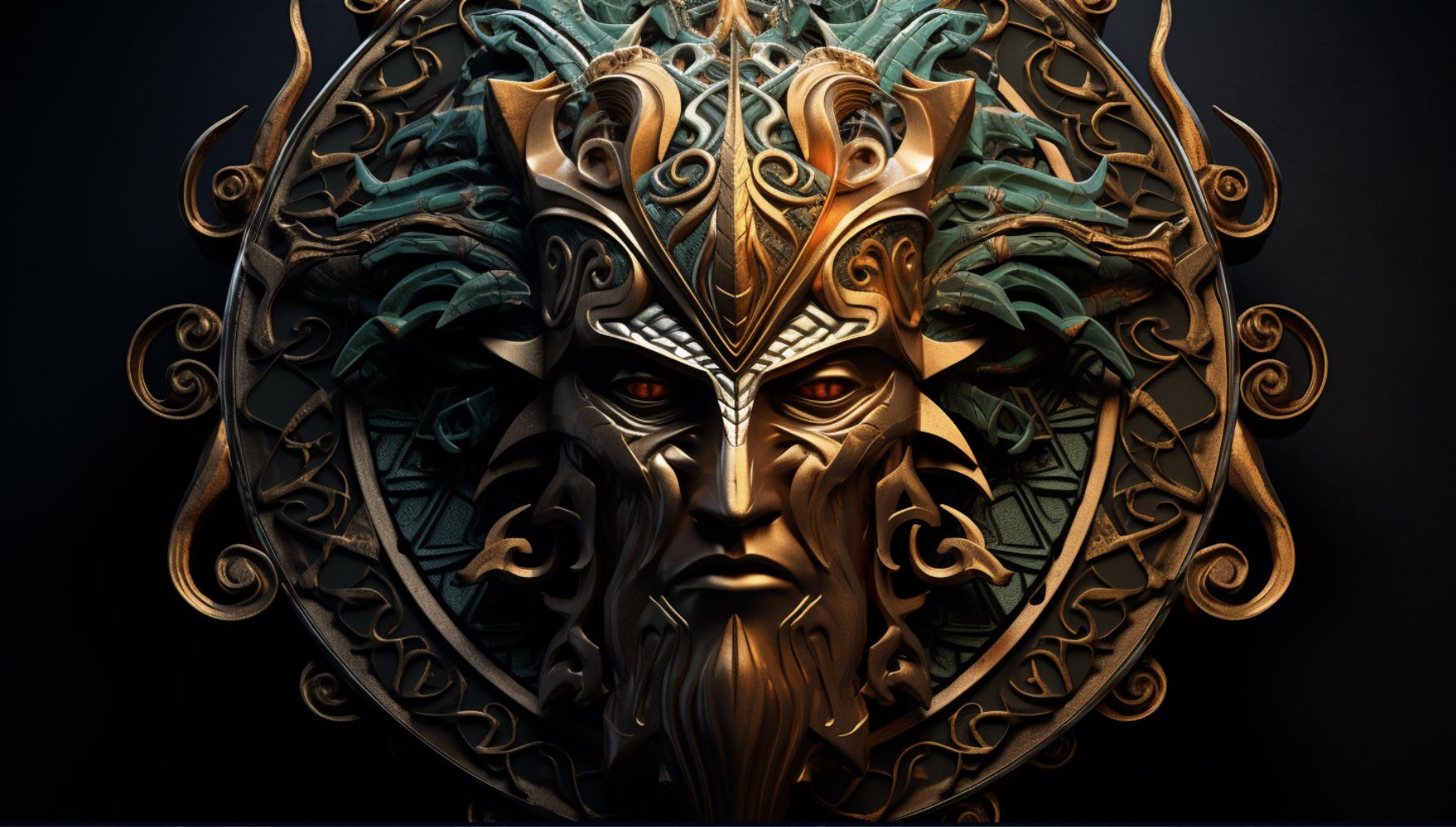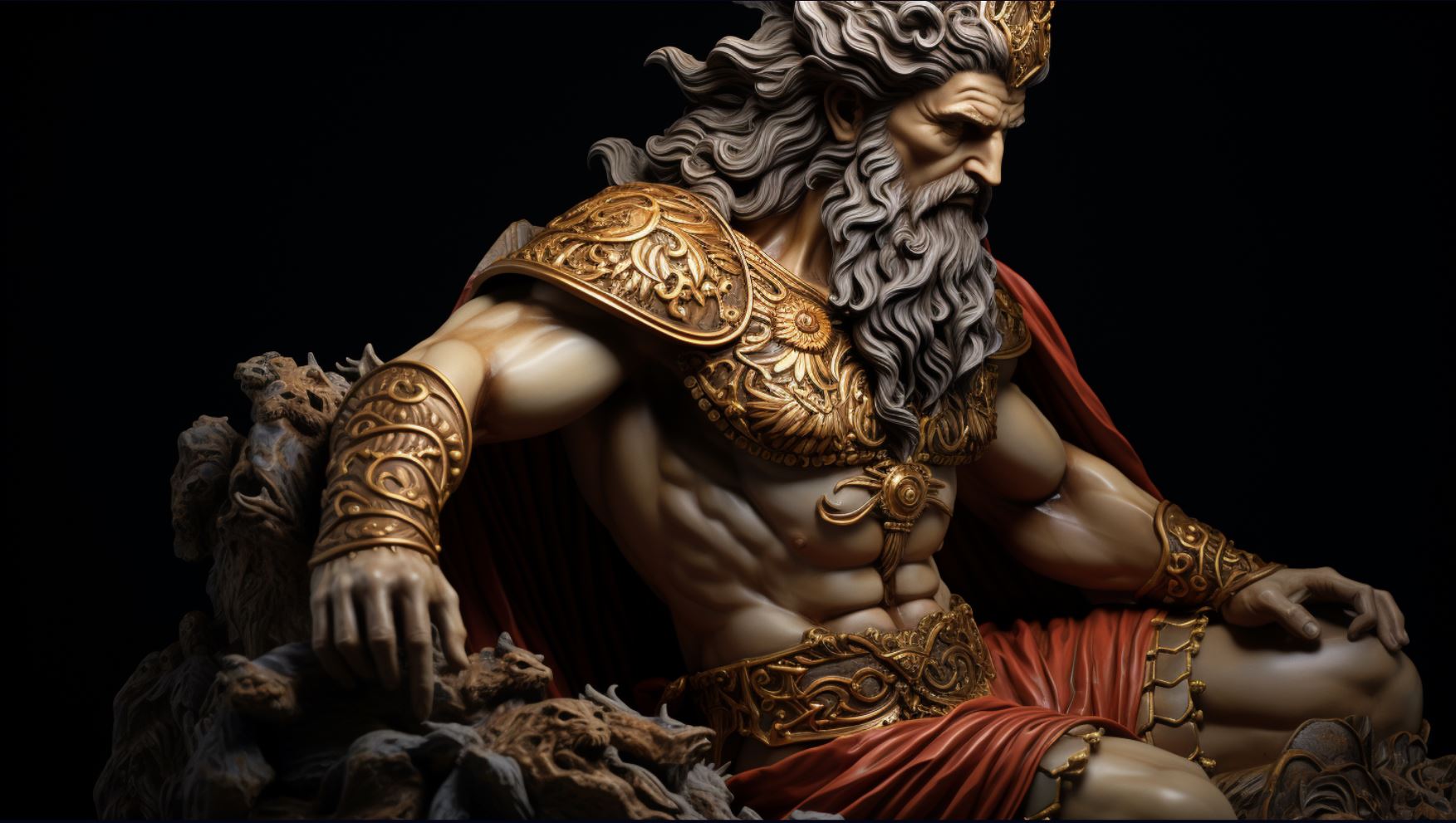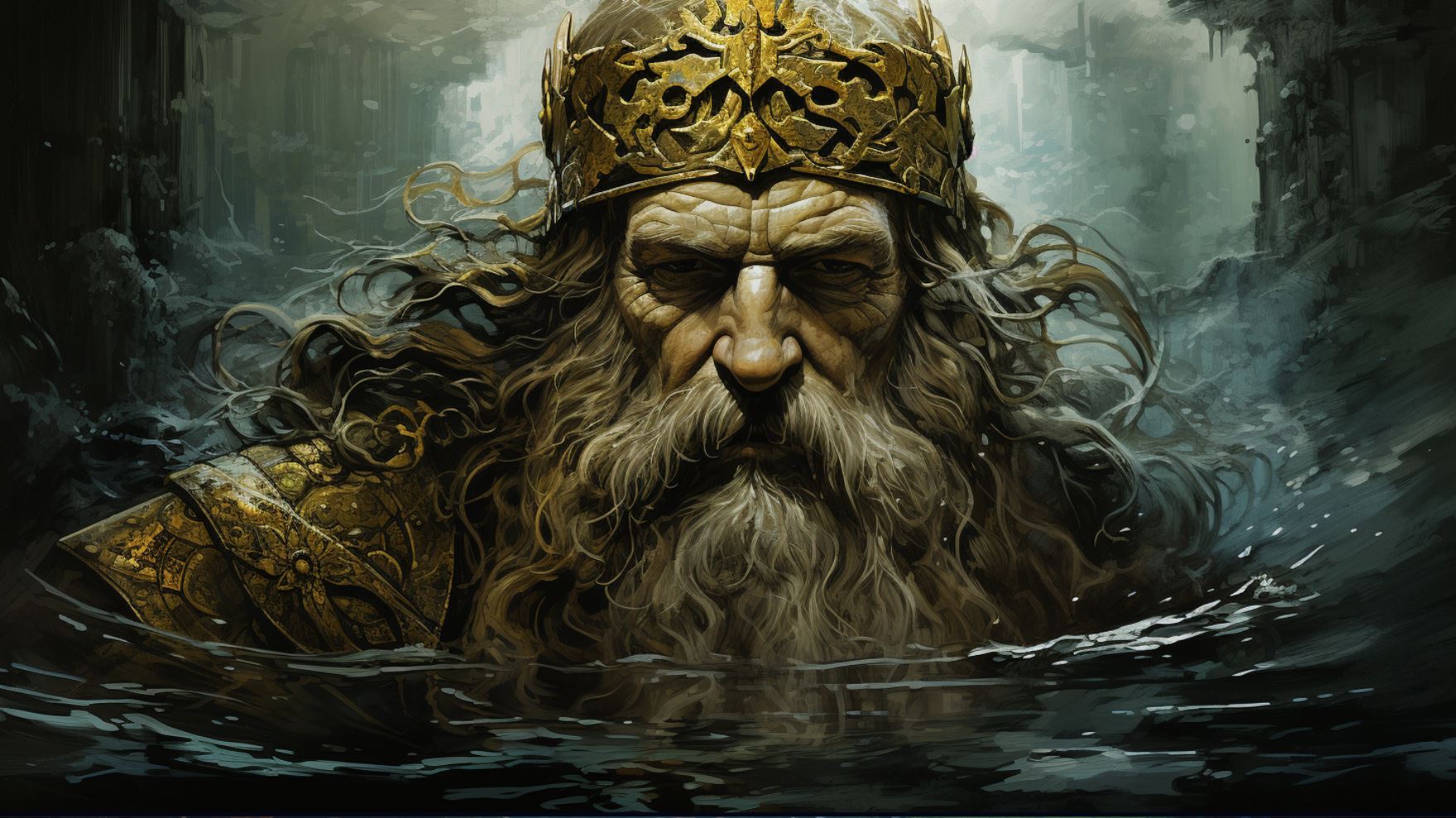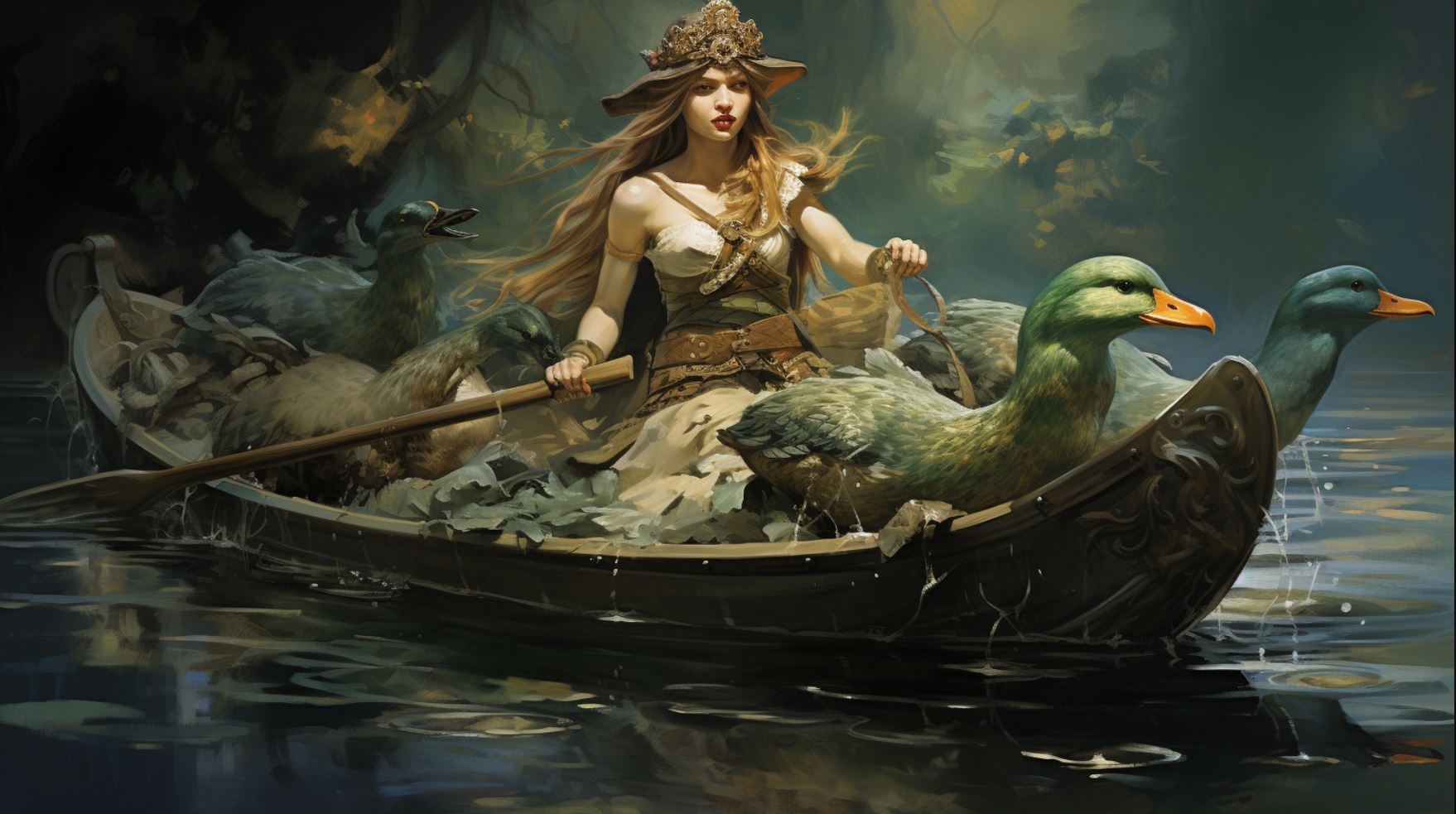Grannus Celtic God: Unraveling the Mysteries of the Celtic Sun Deity
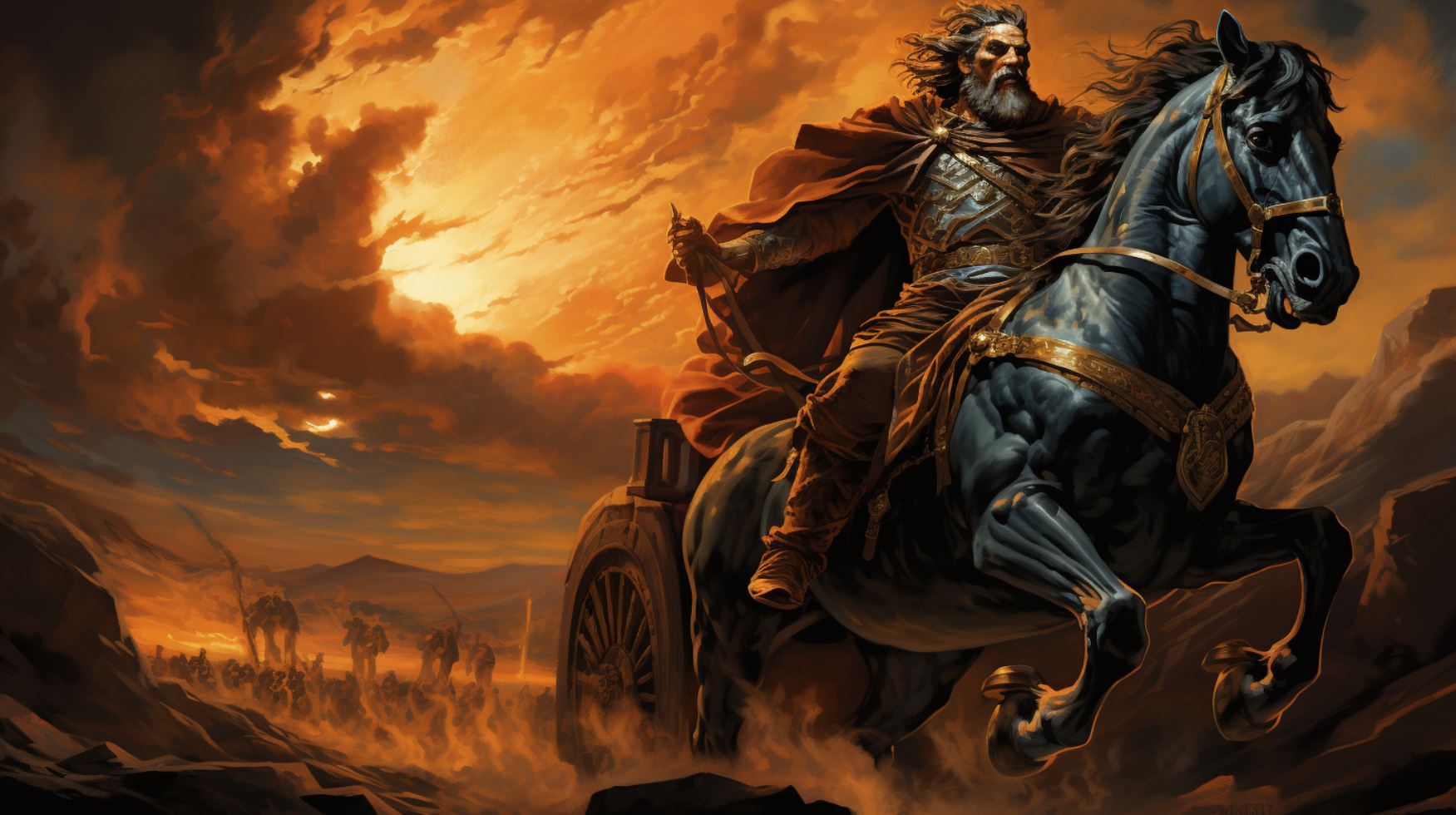
Grannus Celtic God is an important deity in Celtic mythology, associated with the sun, healing, and light. Influenced by Roman culture, his worship spread across Europe and he had sanctuaries in various locations, including the thermal springs of Aquisgrán in Germany.
Grannus is often depicted with horses and a solar chariot, symbolizing his connection to the sun. He is also associated with Apollo and has various names and epithets like Amarcolitanos, Anextlomaros, and Belinus.
Although there is no direct equivalent in Irish mythology, the Indo-European equivalent of Grannus could be Xákwōm Népōt, the Nephew of Waters; and the ‘God of the burning waters’.
Grannus Celtic God holds a significant place in Celtic religious beliefs, revered as the deity of healing and light.
With strong associations to Roman culture, Grannus’ sanctuaries and thermal springs across Europe attracted devotees seeking his curative powers. Depicted with horses and a radiant solar chariot, Grannus’ symbolism embodies his role as the sun god.
Also connected to Apollo, he is known by various names and epithets such as Amarcolitanos, Anextlomaros, and Belinus. While Irish mythology lacks a direct counterpart, Xákwōm Népōt may serve as the Indo-European equivalent, representing the Nephew of Waters
Origins and Background of Grannus Celtic God
The origins and background of Grannus Celtic God shed light on his significance in Celtic mythology. Influenced by Roman culture, the worship of Grannus reflects a fusion of Celtic and Roman beliefs.
His name possibly derives from Grand in the Vosges region, highlighting his connection to healing and thermal springs.
Influence of Roman Culture on Grannus Worship
The influence of Roman culture on the worship of Grannus is evident in the spread of his cult throughout Europe. As the Romans expanded their empire, they encountered Celtic deities, assimilating some into their pantheon.
The worship of Grannus, with his association with healing and light, was particularly appealing to the Romans, who also revered Apollo as a sun god.
Possible Etymology of the Name ‘Grannus’
The etymology of the name ‘Grannus’ offers insights into the deity’s characteristics.
Derived from the term ‘Grand’ in the Vosges region, the name hints at Grannus’ association with thermal springs and healing properties. This connection emphasizes his role as a curative deity in Celtic culture.
Grannus as the Celtic Sun God
The portrayal of Grannus as the Celtic sun god solidifies his status as a powerful and influential deity. Revered as the god of light, Grannus symbolizes the life-giving and healing qualities of the sun.
His association with the solar chariot and radiating head further emphasizes his dominion over the sun and the vital energy it brings.
Symbolism and Representation of Grannus
Depiction of Grannus with Horses and Solar Chariot
Grannus, the Celtic god, is often depicted with powerful symbolism, showcasing his connection to the sun and light. One of the most prominent representations of Grannus is his portrayal with horses and a radiant solar chariot.
This imagery symbolizes his association with solar energy, strength, and mobility. The horses represent the divine beings that aid him in his journey across the sky, while the solar chariot emphasizes his role as a sun god.
Grannus as the Deity of Healing and Light
Grannus holds a significant role as a deity of healing and light in Celtic mythology. As the god of the sun, he brings warmth, vitality, and life-giving energy to the world.
People revered Grannus for his healing powers, and his worship often centered around seeking his blessings for physical and spiritual well-being. The association with light further emphasizes his role as a purveyor of enlightenment and divine knowledge.
Associations of Grannus with Apollo
Grannus shares several associations with the prominent Greek deity Apollo. Both gods exhibit similar attributes, including their roles as solar deities and healers. The connection between Grannus and Apollo suggests a cross-cultural exchange of religious ideas and influences.
This association highlights the interconnectedness of different mythologies and the shared reverence for celestial powers and their healing capabilities.
Grannus Worship and Sacred Sites
Grannus, the Celtic god of healing and light, was revered in sanctuaries across Europe. These sacred sites served as havens of spiritual connection and sought-after destinations for those seeking divine intervention and well-being.
Let’s explore the significance of Grannus sanctuaries, the healing properties associated with his thermal springs, and his notable connection to Aquisgrán in Germany.
Grannus Sanctuaries across Europe
Grannus’ worship spread far and wide, with sanctuaries dedicated to his revered presence found throughout Europe. Pilgrims from various regions traveled to these sacred sites to pay homage to the Celtic god and seek his blessings.
These sanctuaries served as focal points for communal gatherings, where rituals and offerings were made to honor Grannus.
Healing Properties of Grannus’ Thermal Springs
One of the notable features of Grannus worship was the association with thermal springs. These sacred waters were believed to possess healing properties bestowed by the divine power of Grannus himself.
Pilgrims flocked to these thermal springs, seeking relief from ailments and hoping for miraculous cures. The thermal springs were regarded as places of rejuvenation and well-being, where the connection with Grannus facilitated physical and spiritual healing.
Grannus’ Connection to Aquisgrán in Germany
Aquisgrán, located in Germany, held great significance in Grannus’ worship. The thermal springs at Aquisgrán were considered among the holiest of Grannus’ sacred sites. People believed that the waters of these springs possessed potent healing qualities and direct connection to the benevolent power of Grannus.
Pilgrims from near and far made their way to Aquisgrán, hoping to receive miraculous healing and blessings from the Celtic god.
Comparisons and Equivalents in Other Mythologies
The mythology surrounding Grannus Celtic God has intrigued scholars, sparking discussions on potential comparisons and equivalents in other mythological traditions. This section explores the absence of a direct equivalent in Irish mythology, suggests a possible Indo-European counterpart, Xákwōm Népōt, and highlights the similarities between Grannus and Dian Cecht.
Absence of Direct Equivalent in Irish Mythology
Interestingly, while Celtic mythology is rich in deities and supernatural beings, there is no clear-cut direct equivalent to Grannus in Irish mythology. The absence of a specific deity with the exact attributes and significance as Grannus adds to the complexity of Celtic mythological studies, leaving room for speculation and comparative analysis.
Possible Indo-European Equivalent: Xákwōm Népōt
When examining the wider Indo-European context, scholars have suggested that Xákwōm Népōt, known as the Nephew of Waters and the God of Boiling Water, could bear some resemblance to Grannus.
This hypothetical equivalent highlights the shared thematic elements of water, heat, and healing found in both deities’ domains.
Similarities between Grannus and Dian Cecht
Closely related to the exploration of Grannus’ counterparts is an examination of the Irish god Dian Cecht. While not an exact match, Dian Cecht shares similar attributes as a healing deity, making him a noteworthy figure to consider in relation to Grannus.
Further analysis of their shared roles and characteristics could potentially shed more light on the connections between Celtic deities of healing and the divine.
In conclusion, the search for comparisons and equivalents in other mythologies adds an intriguing dimension to the study of Grannus Celtic God.
The absence of a direct counterpart in Irish mythology invites speculation and raises questions about the relationship between different Celtic pantheons. The proposed Indo-European equivalent, Xákwōm Népōt, offers a possible parallel, while exploring similarities with Dian Cecht provides additional insights into the healing aspects of Celtic deities.
This ongoing research deepens our understanding of Grannus and his significance within Celtic mythology.
Epithets and Diverse Names Associated with Grannus
Grannus, the Celtic god of healing and light, is known by various epithets and names that provide further insight into his character and domain. These designations emphasize different aspects of his deity and reveal his multifaceted nature.
Amarcolitanos, Anextlomaros, and Belinus
- Amarcolitanos: This epithet draws attention to Grannus’ association with the healing properties of thermal springs. It underscores his role as a deity of rejuvenation and well-being.
- Anextlomaros: An epithet highlighting Grannus’ connection to the sun, it emphasizes his solar attributes and links him to the life-giving forces of light and warmth.
- Belinus: Not only is Grannus associated with healing and the sun, but he also carries the title of Belinus, suggesting a connection to the wider Celtic pantheon and potentially highlighting his role as a divine ruler or leader.
The Relationship between Grannus and Apollo
Grannus shares an intriguing association with Apollo, the Greek and Roman god of light, prophecy, and healing.
This parallel suggests a blending of Celtic and Greco-Roman religious concepts and reflects the interconnectedness of ancient belief systems.
Various Attributes and Epithets of Grannus
Grannus is also attributed with additional characteristics that enhance his divine persona:
- Healer: Grannus holds a prominent place as a healing deity, offering solace and restoration to those seeking his aid.
- Sun God: As the god of the sun, Grannus symbolizes the life-giving properties of light and warmth, bringing vitality and illumination to the world.
- Diverse Names: Grannus is known by different names across the Celtic lands, reflecting regional variations in devotion and emphasizing his widespread worship.
Exploring the epithets and diverse names associated with Grannus provides a deeper understanding of this prominent Celtic deity, highlighting his connection to healing, the sun, and his diverse roles within the pantheon.
.

